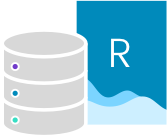30
Nov 2022
IGF Open Forum on Strengthening Multistakeholder Collaboration on DNS Abuse
I&J contributed
November 3, 2022
The Internet & Jurisdiction Policy Network organized an Open Forum on “Strengthening Multistakeholder Collaboration on DNS Abuse” on Wednesday, November 30, 2022, from 9:30am to 10:30am EAT at the IGF took place in hybrid format in Addis Ababa, Ethiopia.
The Open Forum, co-organized with the DNS Abuse Institute, Verisign, the National Telecommunications Regulatory Authority of Egypt, Digital Medusa, and the UK National Crime Agency, brought together practitioners to share their perspectives on DNS abuse and introduce initiatives that are working towards strengthening global multistakeholder collaboration and providing a framework on which responsible action by industry actors may be based.
This multistakeholder session explored three dimensions of addressing abuse through the DNS:
• What does acting at the DNS layer mean?
• When is it appropriate to act through the DNS?
• What is the role of multistakeholderism in DNS abuse?
The session brought together practitioners to share their perspectives on DNS abuse and also introduce initiatives that are working towards strengthening global multistakeholder collaboration and providing a framework on which responsible action by industry actors may be based.
Background
The Domain Name System (DNS) is a naming system that allows users to navigate the internet through the use of human-readable domain names. The DNS - part of the core of the internet - is an addressing system. It is a neutral technical layer that is vital for the proper functioning of the internet. Protection of the core of the internet is and should be a key priority.
DNS Operators increasingly get more and more requests to address specific types of abuses via the DNS. However, action at the DNS level to address technical abuses or problematic content should be considered carefully. Depending on the type of harm, action at the DNS level may be ineffective, blunt, disproportionate or have unintended consequences.
There is no universal global standard for how and when operators are to act at the DNS level, but there is emerging agreement about principles that guide whether intervention at the DNS level is appropriate. Acting at the DNS level should only be considered when it can be reliably determined that the domain itself is used with a clear intent of significant abusive conduct. Furthermore, because the suspension of a domain has by definition a global impact, proportionality requires that only a particularly high level of abuse and/or harm could potentially justify resorting to such a measure. It is important that the impact of a specific action at DNS level is well understood.
• More information about the IGF is available here.
• Check other IGF sessions where I&JPN participated in.
• Download the Toolkit on DNS Level to Address Abuses.
• Check the work of the Domains & Jurisdiction contact group here.
The Internet & Jurisdiction Policy Network organized an Open Forum on “Strengthening Multistakeholder Collaboration on DNS Abuse” on Wednesday, November 30, 2022, from 9:30am to 10:30am EAT at the IGF took place in hybrid format in Addis Ababa, Ethiopia.
The Open Forum, co-organized with the DNS Abuse Institute, Verisign, the National Telecommunications Regulatory Authority of Egypt, Digital Medusa, and the UK National Crime Agency, brought together practitioners to share their perspectives on DNS abuse and introduce initiatives that are working towards strengthening global multistakeholder collaboration and providing a framework on which responsible action by industry actors may be based.
This multistakeholder session explored three dimensions of addressing abuse through the DNS:
• What does acting at the DNS layer mean?
• When is it appropriate to act through the DNS?
• What is the role of multistakeholderism in DNS abuse?
The session brought together practitioners to share their perspectives on DNS abuse and also introduce initiatives that are working towards strengthening global multistakeholder collaboration and providing a framework on which responsible action by industry actors may be based.
Background
The Domain Name System (DNS) is a naming system that allows users to navigate the internet through the use of human-readable domain names. The DNS - part of the core of the internet - is an addressing system. It is a neutral technical layer that is vital for the proper functioning of the internet. Protection of the core of the internet is and should be a key priority.
DNS Operators increasingly get more and more requests to address specific types of abuses via the DNS. However, action at the DNS level to address technical abuses or problematic content should be considered carefully. Depending on the type of harm, action at the DNS level may be ineffective, blunt, disproportionate or have unintended consequences.
There is no universal global standard for how and when operators are to act at the DNS level, but there is emerging agreement about principles that guide whether intervention at the DNS level is appropriate. Acting at the DNS level should only be considered when it can be reliably determined that the domain itself is used with a clear intent of significant abusive conduct. Furthermore, because the suspension of a domain has by definition a global impact, proportionality requires that only a particularly high level of abuse and/or harm could potentially justify resorting to such a measure. It is important that the impact of a specific action at DNS level is well understood.
• More information about the IGF is available here.
• Check other IGF sessions where I&JPN participated in.
• Download the Toolkit on DNS Level to Address Abuses.
• Check the work of the Domains & Jurisdiction contact group here.


